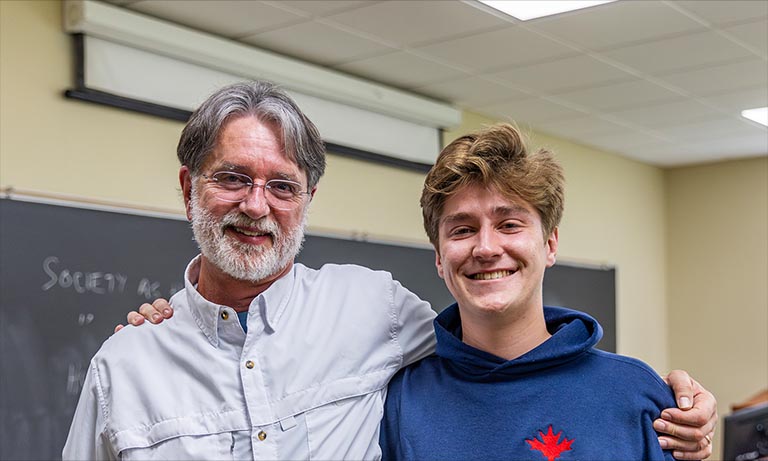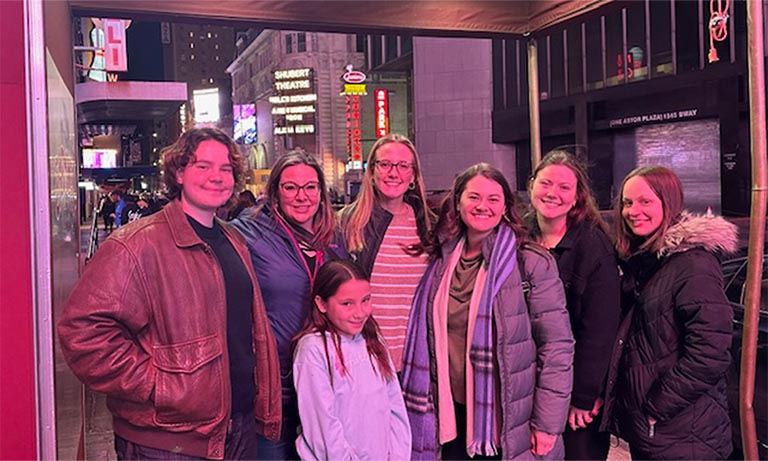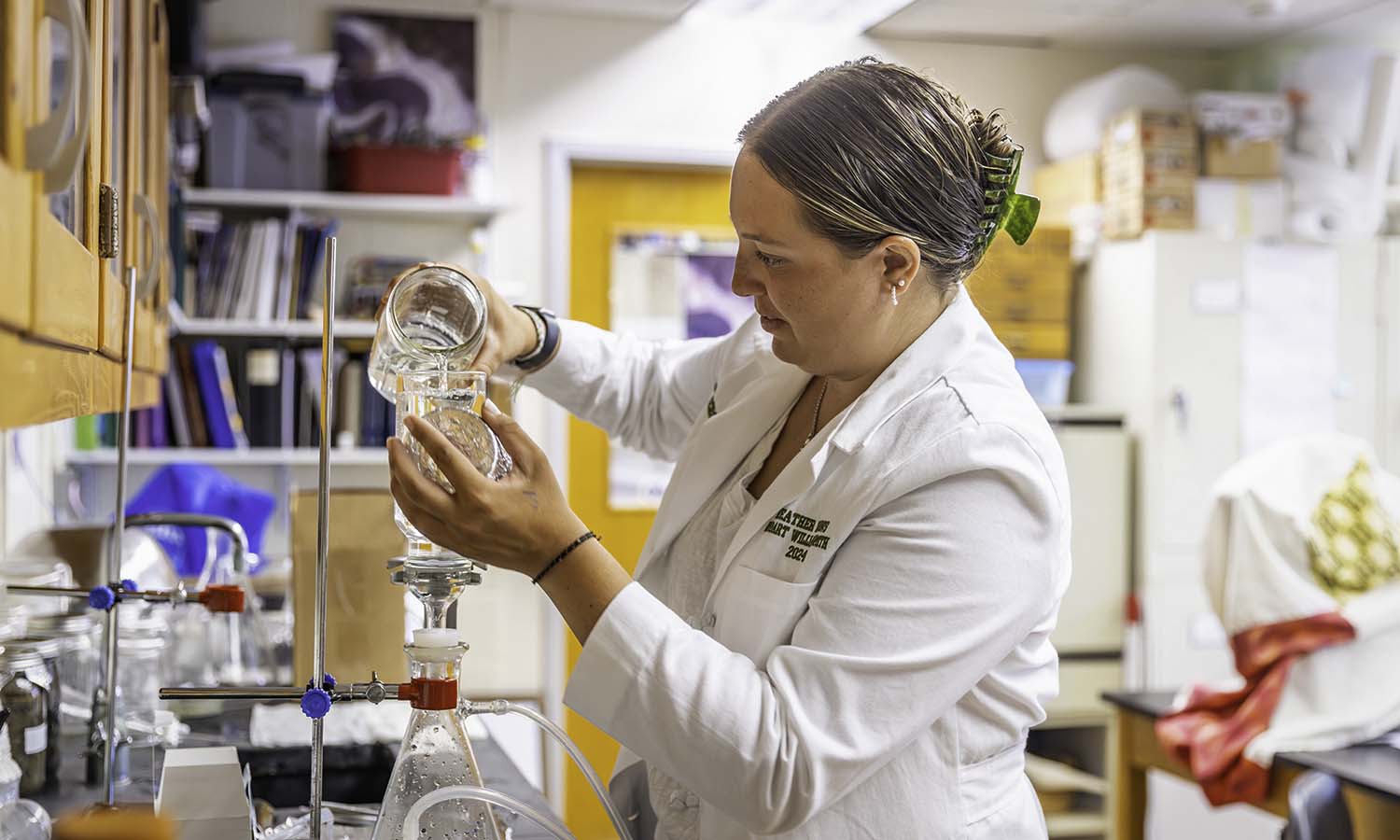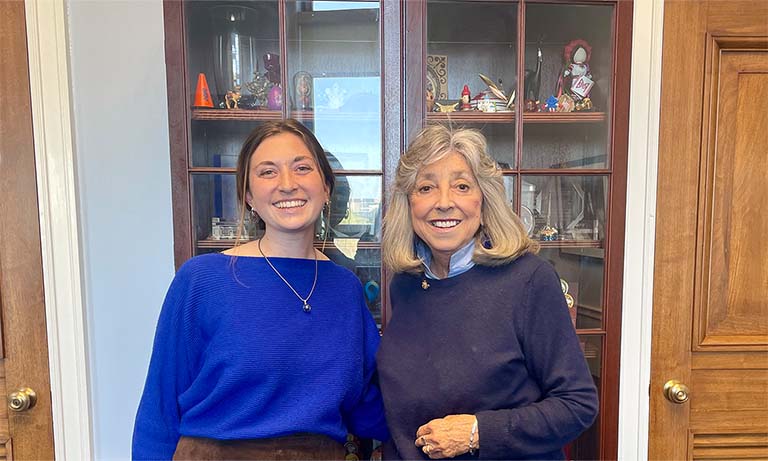
HWS News
12 September 2024 • Alums • Research How Satisfied Are HWS Grads with Their Education?
A new report by Professor Emeritus of Sociology Wes Perkins and Jesse Whelan-Small ’24 details how satisfied HWS alumni are with their education and their lives after graduation.
The responses to HWS Post-Collegiate Life surveys suggest that folks aren’t just “overwhelmingly happy,” says Jesse Whelan-Small ’24, they “are increasingly happy with it.”
For more than 30 years, Professor Emeritus of Sociology Wes Perkins’ Post-Collegiate Life surveys have told the story of the social and work lives of HWS graduates. The research began in 1987 with surveys of three graduating classes and continued two or three times each decade, adding one or two more graduating classes each time.
Although there is still much ongoing research about HWS graduates’ lives, a new report written by Perkins and his former student, Jesse Whelan-Small ’24, suggests that when it comes to how most graduates feel about the value of their academic experience at HWS, they are very satisfied.
Published this spring, “The Post-Collegiate Life Survey of Graduates of Hobart and William Smith Colleges” reports on 19 questions included in the past four surveys since 2003, which asked graduates across several generations how well HWS has prepared them for their lives and careers. The responses suggest that folks aren’t just “overwhelmingly happy,” says Whelan-Small, they “are increasingly happy with it.”
Moreover, as Perkins says, “There’s no other school in the country that has a database like this. At each of the four survey time points in the past two decades, we were able to select the respondents graduating within the most recent 15-year timespan. This allowed us to compare over time periods what graduates of the same post-collegiate life span range retrospectively were saying about their HWS experience.”
Respondents were asked if their education at HWS gave them important skills to live in a diverse world. In the 2019-21 survey, 87 percent of alumni “strongly” or “mostly” agreed. But what’s notable, as Perkins observes and the report details, is the percentage of graduates who “strongly agreed” increased from 28 percent among the Classes of 1989, 1993, 1997 and 2001 in the 2003-04 survey to the 36 percent culled from eight classes spanning from 2005 to 2018 in the 2019-21 survey.
Similarly, the report notes that agreement rose over time among these same comparative age cohorts that their HWS education cultivated in them an understanding of public good and public needs (from 63% to 83%).
Whelan-Small says he was very pleased by the nature of the responses “in categories across the importance of ethical judgment, the commitment to public service, the willingness and the ability to understand differences in the world. I think the fact that all those are consistently going up is a real testament that what HWS is providing is valuable, and it continues to be valuable at a time when that value might be questioned.”
“There’s no other school in the country that has a database like this,” says Professor Emeritus of Sociology Wes Perkins.
Perkins, a leading expert in social norms research, never thought the project would reach its current scope. In fact, he says, “every time I did the survey, I said, ‘This is going to be the last one.’” But people kept responding. Times changed; so did the questions and the answers. The survey became a way to engage in a relationship with the respondents.
The story continues for the report’s authors. Though he retired from HWS this spring, Perkins is using the decades of research to write a book about what leads to happiness and well-being. Plenty of these “life lessons,” he says, came from his students.
Whelan-Small, who delivered the senior speech at 2024’s commencement, picked up an important lesson from Perkins in the course of their work together. Through the project, he realized “that it’s really not so much what you do, it’s how you do it and, I think, who you surround yourself with.”
As Whelan-Small starts his career — he began working for the Washington, D.C. consulting firm Guidehouse this summer — he knows that HWS has given him the confidence to pursue the best version of his post-collegiate life.
“I don’t want to chase a paycheck; I want to be happy,” he says. “And I was lucky enough to be around someone who has literally kind of been the authoritative voice on what it takes to be happy. I think that was just really reassuring for me — and being in a community where that sort of mindset was accepted.”
Read more about the Post-Collegiate Life surveys.
Top: Professor Emeritus of Sociology Wes Perkins and Jesse Whelan-Small '24 pose for a picture together during Perkins' last class in the spring.



